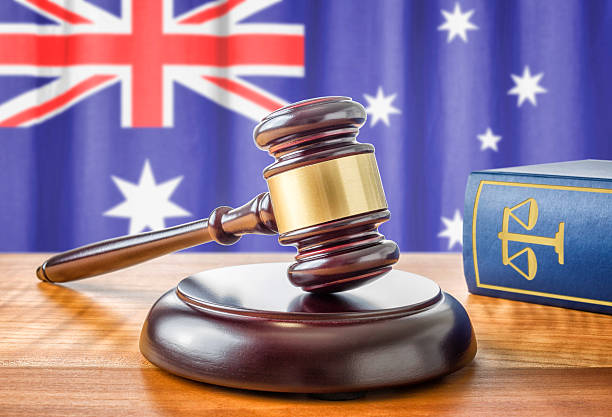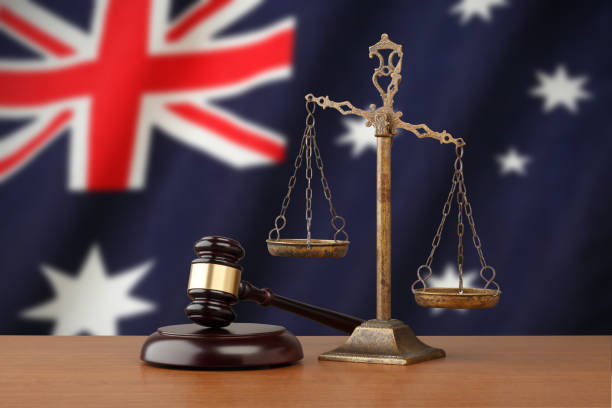Australia is unique among its common law equivalents in that it lacks a comprehensive federal Bill of Rights. This absence has spurred continuous debate over the Australian legal framework’s guarantees for social and economic rights and freedoms. This investigation digs at the nature of rights protection in Australia, the implications of the current framework, and the debate over the possible adoption of a Bill of Rights.
The Current Landscape of Rights in Australia
Australia’s approach to preserving individual rights is very different from that of countries with a well-established Bill of Rights. While essential, the Australian Constitution enumerates a limited set of rights largely concerned with the federation’s government structure, such as the right to religious freedom (s116) and the prohibition of discrimination based on state residency (s117). This selective protection reflects the historical background and constitutional priorities of the time of federation, emphasising government methods and relationships between state and federal domains rather than providing a full list of individual liberties.
Statutory Protections and Common Law
Instead of a comprehensive federal Australian Bill of Rights, Australia protects individual rights through a combination of statute protections and common law principles. The Human Rights and Equal Opportunity Commission Act 1986 is a cornerstone of the statutory framework, tasked with combating discrimination and promoting human rights on a national scale. This statute, along with others such as the Racial Discrimination statute 1975 and the Sex Discrimination Act 1984, exemplifies Australia’s dedication to safeguarding certain human rights via focused law. Furthermore, common law, which has evolved over time as a result of judicial decisions, is critical in protecting rights that are not expressly protected by statutes. This doctrine developed and enforced principles protecting privacy, free expression, and the right to a fair trial, filling gaps left by the constitution and statutes.
Case for a Bill of Rights
The support for a Bill of Rights in Australia arises from a belief in the need for a more systematic and comprehensive approach to protecting human rights. Proponents say that the current fragmentary framework, while useful, is insufficiently unified and allows for unintended rights violations. They argue that a Bill of Rights would not only cover existing gaps in protection, but would also serve as a clear, overarching guidance for both legislators and judges. This will ensure that lawmakers and judges consistently connect new legislation and judicial decisions with established human rights principles, thereby strengthening citizens’ legal protections against potential abuses.
The Case Against a Bill of Rights
Opposition to a Bill of Rights is often motivated by worries about judicial overreach and the preservation of parliamentary sovereignty. Critics contend that a Bill of Rights would transfer major policy-making authority from elected representatives to the judiciary, potentially leading to decisions based on judicial interpretation rather than democratic choice. They argue that Australia’s legislative system, along with current legal and regulatory institutions, already provides a strong framework for rights protection. They suggest that this structure provides the necessary flexibility to respond to changing societal norms and issues while avoiding the rigidity that a Bill of Rights may impose.
In retrospect, the discussion around the introduction of a Bill of Rights in Australia highlights a larger argument about the best ways to protect individual liberties in a democratic society. The safeguarding of fundamental human rights is a significant concern in Australian legal and political thought, whether through improvements to current frameworks or the implementation of a full Bill of Rights.
Those navigating these complicated legal environments or trying to understand their rights under Australia’s unique legal structure can benefit from consulting with legal professionals such as JB Solicitors. If you have any questions or require legal advice, please contact JB Solicitors to see how we may help.
State-Level Developments
The absence of a federal Bill of Rights has not gone unnoticed in Australia’s complex legal framework. States such as Victoria and the Australian Capital Territory (ACT) have been pioneers in incorporating human rights safeguards into their legislative frameworks, establishing a precedent that highlights the power of statutory rights protections.

The Victorian Charter of Human Rights and Responsibilities
Victoria’s Charter, approved in 2006, is a significant step towards incorporating human rights into the state’s legislative procedures. This Charter compels public authorities to act in ways that are consistent with the human rights enumerated in it, and every new legislation must be reviewed for human rights compatibility before it is passed. The rights protected include, among others, the right to be recognised and equal before the law, the right to life, protection from torture and cruel, inhuman, or degrading treatment, and the right to privacy and freedom of expression. This statutory structure not only provides a vehicle for state-level rights protection, but it also acts as a model for human rights advocacy in other countries.
Human Rights Act of the Australian Capital Territory
Similarly, the ACT’s Human Rights Act, enacted in 2004, is Australia’s first legislative attempt to enshrine a bill of rights at any level of government. This Act establishes a number of civil and political communication rights, including the right to life, the prohibition of torture and inhuman treatment, as well as the rights to privacy, freedom of movement, and a fair trial. It provides a dialogue model that mandates the Legislative Assembly of the Australian Capital Territory to consider human rights when making legislation, and judges to interpret laws in a way that is as human rights compliant as possible.
These state-level innovations demonstrate a grassroots approach to human rights protection, highlighting the viability and benefits of statutory rights safeguards. They serve as a practical paradigm for what may be accomplished on a national scale, illustrating the influence and significance of legal frameworks committed to human rights protection.
Role of International Law
Australia’s involvement in international human rights law strengthens its domestic legal system by bridging the gap between global human rights norms and local enforcement. As a signatory to numerous international human rights treaties, including the International Covenant on Civil and Political Rights and the Convention Against Torture and Other Cruel, Inhuman, or Degrading Treatment or Punishment, Australia pledges to uphold the principles and rights enshrined in these instruments.
Influence on Domestic Laws and Policies
While these international treaties are not immediately enforceable in Australian courts unless specifically integrated into domestic law, they do have a substantial impact on the creation of laws and policies. The Australian government regularly reports to treaty organisations, and these interactions, together with suggestions from international human rights mechanisms, help shape national human rights discourse and legislative reform.
Integration Into Domestic Law
Australian law incorporates international human rights norms through various mechanisms. This inclusion demonstrates Australia’s commitment to the global human rights regime while also improving local human rights protection.
While Australia lacks a federal Bill of Rights, the proactive actions taken by states such as Victoria and the ACT, together with the country’s participation with international human rights law, demonstrate a diverse approach to rights protection. These developments indicate how human rights advocacy and protection in Australia are changing, suggesting a future where domestic legislation and global participation increasingly safeguard rights.
Moving Forward: The Debate Continues
Australia’s debate over a Bill of Rights is ongoing, with convincing arguments on both sides. As Australia evolves, the debate over how to best safeguard and promote individual rights and liberties remains an important component of the country’s legal and political discourse.

Consult JB Solicitors for Expert Advice.
It might be difficult to navigate the complexities of Australia’s rights protection system. JB Solicitors is here to provide competent legal advice and support, whether you want to understand your rights under the current legal framework or have specific concerns such as:
- The role of the Australian Human Rights Commission
- Challenging a government decision that infringes your fundamental rights.
- Help you file a case that involves discrimination under the Racial Discrimination Act
- Help you file a case that involves human rights abuses under multiple Human Rights Acts in Australia
Our seasoned lawyers are well-versed in Australian law and are committed to protecting your rights and interests. If you have any queries or require legal assistance, please call JB Solicitors now to find out how we can help you navigate the Australian legal landscape.
